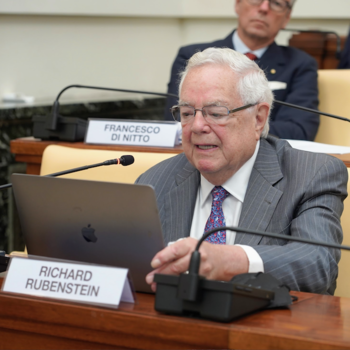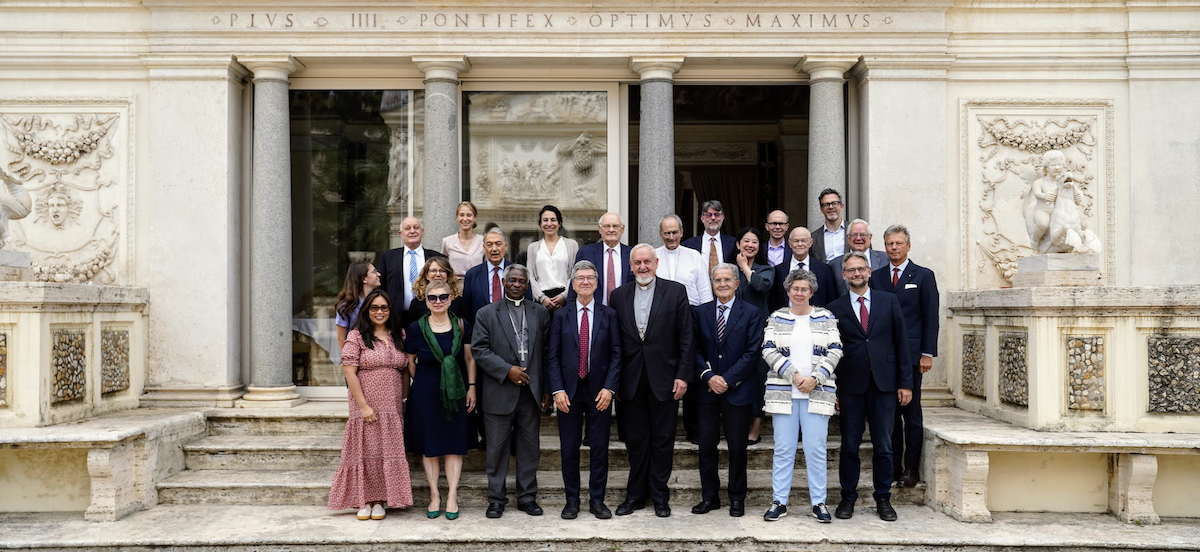In This Story
George Mason University Carter School professor Richard Rubenstein attended a workshop conference at the Pontifical Academy for Social Sciences at the Vatican on June 6-7 to discuss peacemaking in Ukraine and other global conflict sites. The conference was organized by the U.N. Development Solutions Network headed by Columbia University professor Jeffrey Sachs.

“The purpose was to produce a statement that would be given to the pope and that might also influence the parties to the conflict in Ukraine,” Rubenstein said.
About 40 VIPs were in attendance, including Romano Prodi, former prime minister of Italy and 10th president of the European Commission; Jeffrey Sachs, university professor at Columbia University; Michael von der Schulenburg, former United Nations assistant secretary-general in UN Peace Missions; Mario Marazziti, former deputy and president of Human Rights Committee, Italian Parliament; and Nina Khrushcheva, professor of international affairs at The New School.
Attendees each gave a 10- to 15-minute presentation, Rubenstein said, which included open discussions.
“The statement is now getting more signatories,” said Rubenstein. “It was a good meeting, and it may have some results. We’ll see.”
What do you hope the impact of the statement will be?
“What we want to happen is to get the document into places where it will be discussed by decision makers.”
What was the pope’s reaction?
“Pope Francis has already made a statement on this. The pope says to stop dramatizing, stop trying to turn this into some type of titanic struggle about the fate of an autocracy—that’s not what it’s about. It’s a very interesting statement by the pope and, I think, partly, that’s a response to our discussion.”
What was your role at the conference?
“One of my roles there was to raise the question of when this is all over, how do these people learn to live with each other again? What kind of reconciliation is going to be possible considering how many people are getting killed and how much bitterness has been created by the war?”
What does this say about the Carter School and Mason to be represented at the meeting?
“It’s a really good sign. It’s not just our expertise in negotiation that's being recognized, but our independence of mind and our ability to think about the possibilities of peacemaking even in a wartime atmosphere. Everyone at the conference understood that peacemakers may be blessed, but this doesn’t mean they will be popular.”

